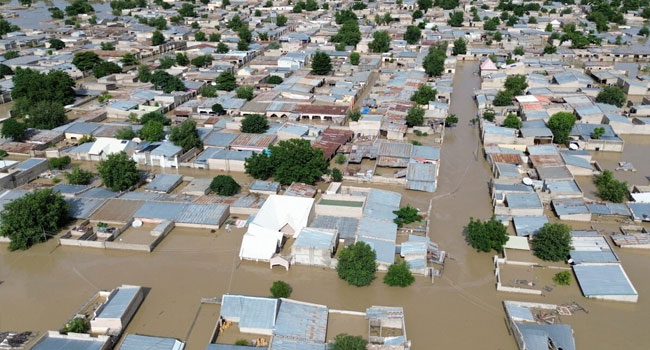Governor Abba Yusuf of Kano State has reiterated his administration’s commitment to partnering with the National Emergency Management Agency (NEMA) in tackling flood-related challenges across the state.
The governor made this known on Saturday during a Proactive Disaster Preparedness Simulation exercise led by NEMA Director-General, Zubaida Umar, in Kano.
Represented by his deputy, Aminu Gwarzo, Yusuf assured that the state government is ready to provide full support to NEMA in its disaster prevention and management initiatives.
He emphasized Kano State’s dedication to disaster preparedness and underscored the critical role of collaboration with federal agencies in protecting the lives and property of residents.
“This exercise comes at the right time because prevention is always better than cure. These preventive measures ensure that, should any disaster occur—which we hope never happens—our people will be better prepared, and the level of destruction significantly reduced,” he said.
Yusuf praised NEMA for its forward-thinking approach, learning from past incidents to develop strategies that reduce future risks.
“We believe the agency is taking commendable steps to proactively minimize the impact of disasters. May we never again experience the kind of floods we’ve seen in past years,” he added.
He also expressed gratitude to NEMA for selecting Kano as the central hub for the exercise and reaffirmed the state’s commitment to supporting similar efforts in the future.
In her remarks, NEMA Director-General Zubaida Umar said the exercise marks the start of a large-scale disaster simulation aimed at strengthening preparedness and coordination among stakeholders.
She noted that Kano’s strategic location makes it an ideal center for the simulation, which also includes neighboring states such as Yobe and Jigawa.
“A few days ago, we conducted a similar exercise in Anambra State. This is part of our nationwide approach to disaster preparedness,” Umar explained.
She emphasized the agency’s shift from reactive to proactive strategies, stating: “We are no longer waiting for disasters to happen. Our goal is to build readiness and resilience across all levels.”
Umar called for the active involvement of all relevant agencies and stakeholders to ensure a disaster-resilient Nigeria.
Through initiatives like these, Nigeria is steadily moving towards a future where disasters are anticipated, managed, and mitigated through robust planning and collaboration.


